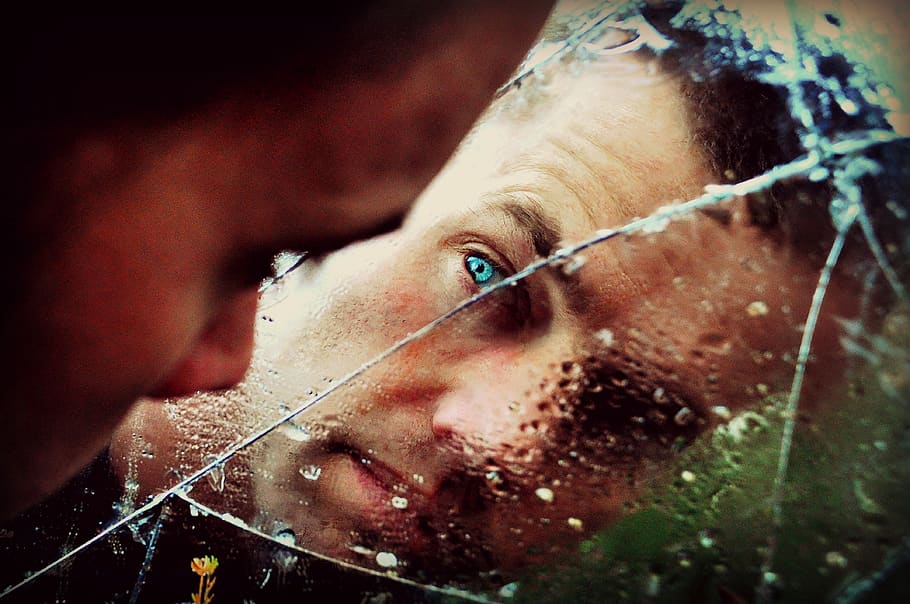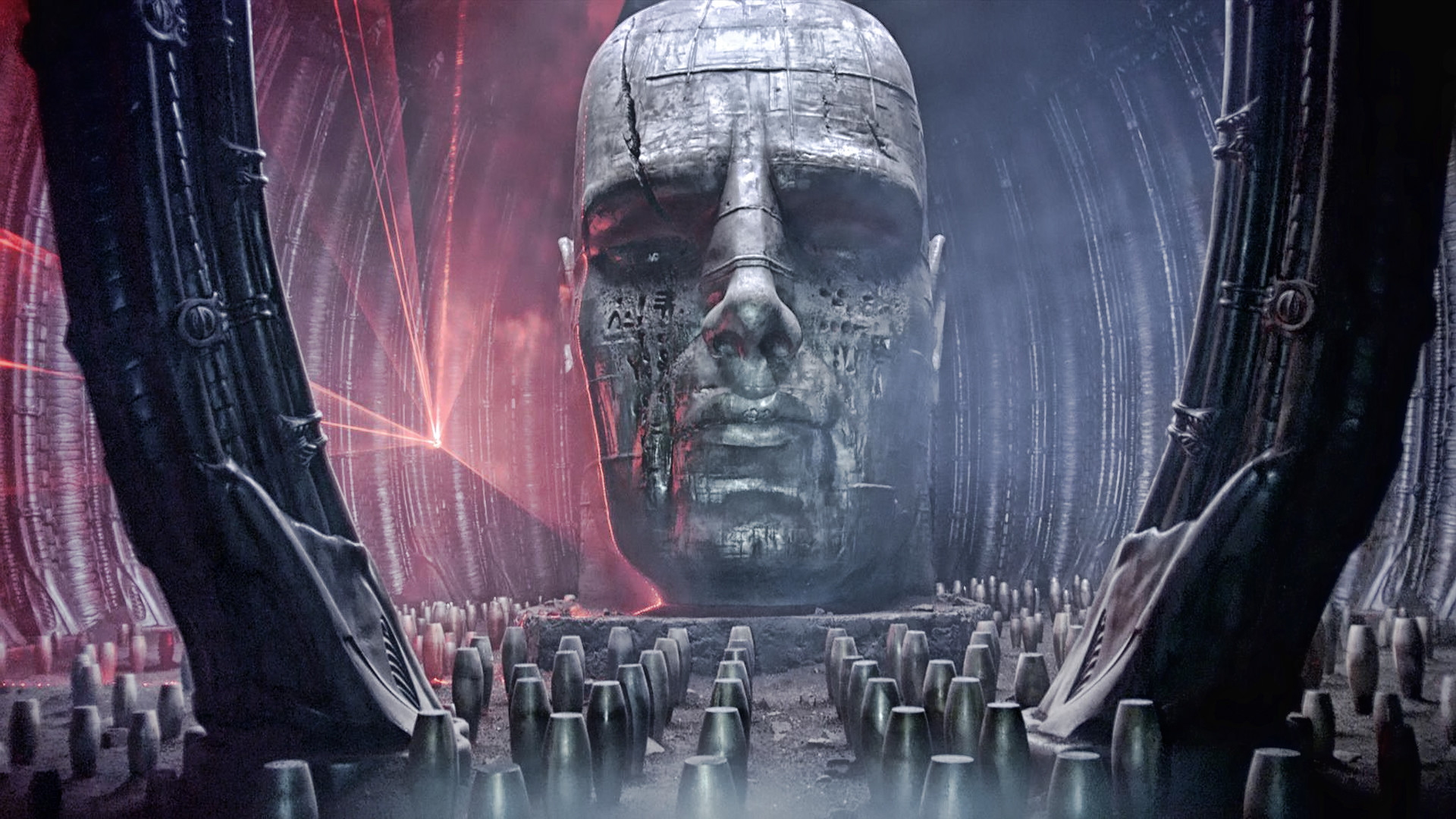When we’re playing a finite game then we are being controlled by our need to control. We are absolutely controlled by our need to control – we couldn’t be controlled more! Yet despite this we don’t see this as being the case, we would never see a game as being ‘a situation where we are being totally controlled the whole time’. That doesn’t sound like much fun, after all! It certainly doesn’t sound like a situation that holds any actual benefits for us…
Instead, we see a game as a situation in which we have the opportunity to learn to control effectively and as a result of what we learn, gain access to possibilities that were not available to us before. If we didn’t see things like this then we simply wouldn’t bother engage in the game, clearly. It would be entirely pointless – there’s always got to be an incentive of some sort to playing, after all. Playing the game is only ‘a means to an end’ (or to paraphrase James Carse, ‘the point of finite play is to bring the play to a close’).
Being perfectly in control means being free, in the way that we see things – we can only be free by learning to control well, we say. Actually, ‘being perfectly in control’ is the same thing as ‘being perfectly controlled’, only we’re seeing it backwards; we are seeing it the other way around because we’ve identified with the force that is controlling us. The things we control control us; freedom means not having to control at all, not perfect adaptation to the constrained or limited situation which is the game. Games are made up of rules and so to play the game perfectly means following knowing what the rules are and being able to follow them without any mistakes; the game thus gets to totally define us and being totally defined by the game doesn’t equal freedom!
We throw ourselves into the game so that we can have a shot at winning, which (ostensibly) opens the doors to wonderful possibilities that we didn’t previously have. When we’re in the game then we have to ‘play by the rules’, as everyone knows, but rather than seeing this as a situation in which we are being controlled by the rules (which we absolutely are) we see ourselves as temporarily submitting to the rules so that we may gain a benefit, so that we stand a chance of ‘hitting the magic jackpot’. There’s a point to what we’re doing, in other words. This is seen as a necessary but temporary sacrifice of our freedom, just like getting a menial and unrewarding job so that we can obtain the money to live. This isn’t how it works in a game however – no matter what happens in a game it is always going to be totally controlling us. There is no outcome of the game which equals ‘being free from the game’ – that’s just never going to happen…
How then does the illusion of freedom arise, we might ask? Where does it come from, and how is it made as believable to us as it obviously is? The answer to these questions isn’t too hard to understand once we see that being adapted to a game means tacitly adopting the sense of identity that the game provides us with. When we take part in a play we accept the role that the script specifies for us, and when we play a finite game we accept the identity of ‘the player of the game’ or the identity of ‘the one who wants to win the game’ (or as we might also put it, ‘the one who believes that they at least stand a chance of winning the game’). If we didn’t accept the part of the one who wants to win then we couldn’t play, obviously! That’s what the game is – it’s ‘us agreeing to accept the role of the one wants to win at it’.
If we didn’t believe that we had at least some tangible chance of winning then we couldn’t play either, as we’ve just said. Whilst we need to believe that the problem is soluble, what is more important than this however is that we should believe it to be worth winning in the first place, that we should believe winning to be an especially great thing, and the only way we can get to believe this is by seeing things in the way that the game itself presupposes. In order for ‘winning to be winning’ we have to step into the frame of reference which we are calling ‘the game’, having done this however we are agreeing (by the back door, as it were) to see everything from the point of view of the game. This is the Trojan Horse Principle. Everything that happens has to happen within the terms that have been provided by the framework. Whilst the game is in play we will be defined as players, competitors, or ‘contenders for the title of winner, and when it concludes we will be defined either as ‘winners’ or ‘losers’, but at no time, under any circumstances, will we be able to escape being defined by the game. No matter how well (or how badly we do), we’re never going to be able to escape being trapped by the game.
For there to be this thing called <winning> there has to be a precisely defined goal, along with a way of reaching it, but for us to be able to ‘tune in’ to this precisely defined goal we have to align ourselves with the game’s way of looking at things, which gives us both the definition of ‘what we are to do’ (in order to be successful), and the sense that this ‘success’ is actually meaningful (which isn’t the case outside the context of the game). If we align our way of looking at things with the ‘prescribed point of view’ then winning immediately becomes a very real prospect; then the goal becomes clear to us – it becomes ‘the realist thing there is’ (apart from ‘losing’, that is!) but this can only come about as a result of us taking up the understanding of ‘who we are’ that the game provides for us. Winning can only ever make sense from the POV of ‘the one who is playing the game’, after all. The game only becomes real to us when we play it, in other words – ‘hope creates the hoper‘.
When we agree to see winning as a real thing then we simultaneously agree for the player (i.e., the one who wants to win) becoming real too, but neither are – both are merely constructs of thought. We were asking a moment ago where the illusion of freedom comes from in all this and one answer to this would be to say that the ‘freedom’ we see is freedom as it is seen from the point of view of the conditioned self (which is to say, from the POV of the game-player). Because we have identified with this POV the possibility of ‘freedom’ – as it would appear to be from this vantage point – then seems to us to be very real indeed, and the possibility of attaining it is very motivating indeed. This is conditioned freedom however, which is to say it is ‘freedom as the conditioned self sees it’, which is of course a highly significant proviso – conditioned freedom is ‘the sterile fantasy of thought‘! The only type of ‘freedom’ that the conditioned self believes in is ‘freedom for it to do whatever it wants’, or ‘freedom for it to obtain any goal that it wants’. This is an extraordinarily attractive prospect for us – it is an intoxicatingly attractive prospect – but the twist in the tale here is that what we’re being attracted to doesn’t exist, any more than ‘who we think we are in the game’ exists. The player is ‘the game’ and winning/losing is ‘the game’, and the game isn’t real.
One of the symptoms that is used to diagnose schizophrenia is the perception that we are that our thinking is being controlled every step of the way (along with the perception that our thoughts are being inserted or taken away by some outside agency). ‘No one’s thinking is being controlled’, we would say, ‘that just can’t happen…’ But the reality is that our thinking is always being controlled, we couldn’t think anything if this were not so. Thinking would be a thing unless this were the case. In order for us to think we have to be provided with a ‘determinate picture of reality’, a totally defined picture of the world, and so it is this totally defined picture of the world (which the game provides us with) that is controlling us. We are a function of that defined picture, that logical continuum, and so of course we are being controlled by it. How could we not be?
If the Defined Picture were the same thing as ‘reality itself’ (which is what it implicitly claims) then we wouldn’t be being controlled, it is true, but this just isn’t the case – the Definite Picture is an artefact, a device, a gimmick, a construct, an unreal formalism, a ‘made-up thing’. There is no volition whatsoever involved here (there can’t be when it’s ‘adaptation to a virtual reality’ we’re talking about) – the conditioned self is controlled by the External Authority of the Framework every step of the way. If it were not being controlled every step of the way then it simply could not exist. The CS has been created by the external authority of thought, which is what this really comes down to. ‘Who we think we are’ can only exist within the context of a construct that we can’t see to be a construct, within the context of a game that we can’t see to be a game, within the context of slavery that we believe to be freedom…
Image – mygamewallpaper.net






